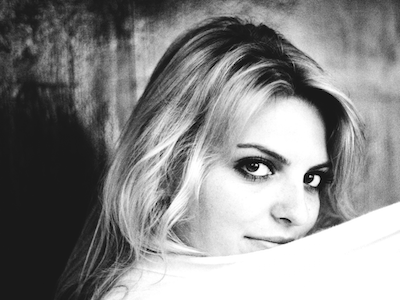
Morgan St. Jean
Contributor
During my junior year of college, I took a class called “The Science of Happiness” (yes it was as cool as it sounds).
Throughout the semester we looked at different life circumstances and explored whether they did or did not affect people’s overall happiness. We looked at finances, career choices, family situations, and various other factors and decided whether or not these things actually made people happier.
As humans we have a tendency to always be looking for the next best thing. We think that if we just had more money, or a bigger house, or a nicer car, then we would truly be happy. We’re constantly comparing ourselves to the people around us and then figuring out how we can have more than them thinking that once we have the very best then we’ll finally be happy.
We think we’re satisfied with our lives until we see our friends on social media looking way happier than us, and suddenly we want what they have.

Photograph via Brook Cagle
Happiness has become this elusive destination, and everything we do is in search of it. We spend our time trying to meet the people that will make us happy, get the job that will make us happy, make more money so that we will be happy.
There are countless self-help books, life coaches, and TV shows that claim to know the secret to a full and happy life, but all of them have different theories. One day I’m told to move to the middle of nowhere and spend my days planting vegetables and the next I’m told to wake up at 5am every morning to go to some “stable” desk job.
After hearing all of this conflicting advice I was left with one question…
When did being happy become so complicated?
As kids the things that can make or break our happiness are as insignificant as an ice cream cone or a day off school. We cry when we’re sad, we laugh when something’s funny, and we certainly don’t walk around chasing happiness. However, as we get older and life gets more complicated, so do our emotions.
We’re taught to hold things in so as not to embarrass ourselves. As an adult, it’s inappropriate to scream just to get your mom’s attention and you’re not allowed to throw a fit when you don’t get something you want. While it’s probably a good thing that the world isn’t full of adults sitting on the floor of grocery stores banging their fists and screaming for more chocolate, I think that these limitations are also placed on our ability to express our happiness.
When you get into your dream college, you’re not supposed to be too excited because you don’t want anyone to think you’re bragging. If you find the love of your life, you shouldn’t act too in love because people will think that’s annoying and PDA is gross.
We’re taught to filter the things that we feel because society tells us to and because we don’t want to be too different from everyone else. I think that these limitations of expression make us feel like we’re not actually as happy as we are.
Because of this we start looking for happiness in external places. This is the point where we start trying to lose more weight, or buy nicer clothes, or look perfect on social media because at least that will make it look like we’re happy.
In the Science of Happiness, we looked at people’s reported happiness levels before and after winning the lottery. Winning the lottery is the epitome of life changing… Average people go from struggling to pay the bills to flying around in private jets and eating caviar (that part actually sounds not that fun but we all get the idea).
Most of us would guess that if we won the lottery we would definitely be way happier than we are right now. Scientists found that for a little while, this assumption proved to be true. For the first few years after winning the lottery, people reported that they were happier than they’d been before winning.
However, as the years passed, these people got used to their new lifestyles. The money and the lack of struggle became normal and these people started looking around for something newer and better. Eventually they all reported that their happiness levels were the same as they were before winning the lottery.
Photograph via Frank McKenna

We also looked at people who in the middle of their lives became unexpectedly paralyzed and had to adjust their way of living completely. Most of us would assume that something so awful would prevent us from ever being happy again. However, scientists found that the same results that applied to the lottery winners also applied to the people who’d become paralyzed.
At first, these accidents definitely affected their levels of happiness. They were less satisfied with their lives then they were before. However, a few years later, once they’d adjusted to their new lives, they reported that they were just as happy as they’d been before their accidents.
So, suddenly winning a whole lot of money won’t make us happy and unexpectedly losing our ability to walk won’t make us unhappy. Knowing this, it’s safe to assume that buying a new car or losing an extra five pounds won’t significantly change the way we feel about our lives. If that’s the case, what does make for a happy life?
During the last class of the year, after considering all of the different things that could affect our happiness, our professor posed exactly that question. We looked at the answers from a few different famous philosophers. Similar to the theories of today, they had all come to different conclusions.
Viktor Frankl said we should live our life as if we’ve already lived it once so that we make it count and don’t waste it away. Jonathan Haidt said that happiness comes from being a part of something greater than ourselves. My professor said that being happy is being ok with the unknown and accepting it as part of the journey. However, my favorite of the answers that we looked at is one that I have begun to live my life by. It has become my motto and my philosophy for life.
“Love and work, work and love, that’s all there is.”
As much as I wish I could take credit for this concept, it was Freud who said this first.
I really connected with this theory because it was just so simple. Happiness consists of two things: Love and Work. Surrounding yourself with love and meaningful relationships makes your life enjoyable, and working towards something that your passionate about makes your life purposeful.
If we look at our day-to-day lives and try to do things either out of love for the people we’ve surrounded ourselves with or out of passion for the work that we’re pursuing, it really clarifies what’s important and what’s not. I really liked this theory because it allows us to feel the happiness that is already within us and not be ashamed of it. It encourages us to express the love that we feel and to be passionate about what we do rather than limit our emotions because society tells us to.
As a musician, I’ve also found that we can take this theory one step further. For me, love and work are one in the same. Being in love with our work (whether it be how we make a living or just a hobby on the side) makes our lives more fulfilling than we could’ve ever hoped.

Photograph via Fernando Brasil
In the end, I feel like this theory encompasses all of the other theories that we learned about in just two words. Frankl suggested that we live our lives as if we’ve already lived once and this is our do-over, ensuring that we are living intentionally and not taking our lives for granted. By spreading love and creating significant work, we are doing just that… making the most of the lives we’ve been given so that we only have to live once.
Haidt suggested that we find a way to feel like we’re a part of something bigger than ourselves. Pursuing work that inspires others and connecting with people in meaningful ways takes us outside of our own little worlds and makes us a part of something greater.
And as my professor said, we must not be afraid of the uncertainty of life. We must accept the unknown. If we are doing everything we can to live a life full of love and meaningful work, I think we will be more comfortable with the uncertainty of the world.
By living life based on love and work, in the end, we’ll know that we did everything we could to make the most of the lives we’ve been given. And I think that will make us genuinely happy.
Quick editor’s note: I’m really excited to be able to showcase Morgan’s talents on Mindsoak. She’s uniquely talented, wonderfully genuine and incredibly inspiring. After having conversations with Morgan you quickly realize you’re better for it. Speaking of conversations…tomorrow I will be releasing my interview I did with Morgan for a podcast episode. In the episode you learn more about Morgan’s background in music, hear her songs and get to hear her explain the meaning behind each song. Stay tuned and make sure to check out www.morganstjean.com
Peace!
– Jon
More about Morgan St. Jean: Morgan St. Jean is a singer-songwriter with a unique and soulful voice whose lyrics touch audiences with their truth and beauty. Having always been intrigued as to why people love, lie, fight, and feel so many different things, the young artist has spent her time exploring the human condition through songwriting.






